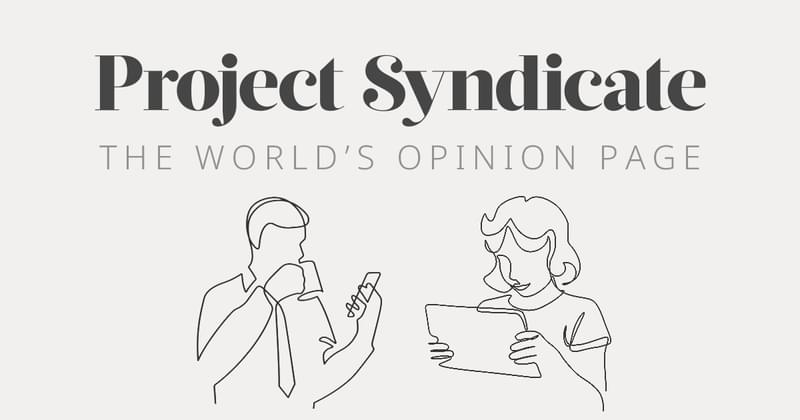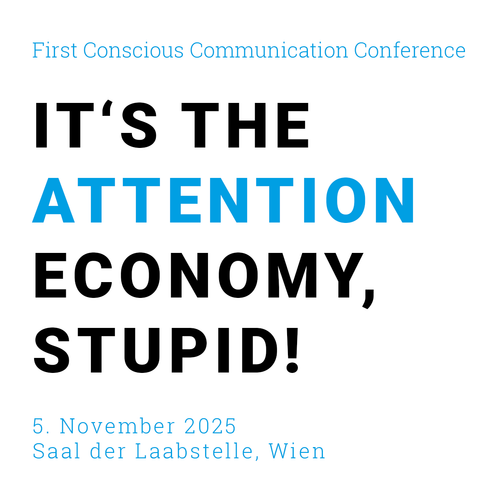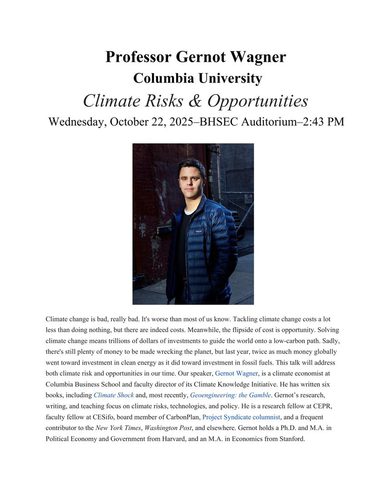

Behavioral economics of climate action
by Till Requate, Gernot Wagner, and Israel Waichman

AP: "Researchers slightly lower study’s estimate of drop in global income due to climate change"
by Alexa St. John

Washington Post: "Private companies have raised millions to block the sun. What could go wrong?"
by Nicolás Rivero

ORF Umwelt- und Nachhaltigkeitsbeirat
Wien, Österreich

Washington Post: "On Giving Tuesday, how to make small donations with big climate impact"
by Michael Coren

Politico: "The Strange and Totally Real Plan to Blot Out the Sun and Reverse Global Warming"
by Karl Mathiesen and Corbin Hiar

Dialogues in Complexity Workshop: "Cost of Delay"
Princeton, NJ

New Yorker: "Why the Time Has Finally Come for Geothermal Energy"
by Rivka Galchen

How to Measure Climate Progress
Ending reliance on oil, coal, and gas, and embracing technologies that will only improve and become cheaper over time, is not just smart climate policy. It is the best way to improve economic competitiveness and human prosperity for decades to come.

Universität Innsbruck Woche der Nachhaltigkeit 2025: "Unternehmerische Chancen des Klimawandels in Zeiten des Trump'schen Chaos"
Innsbruck, Österreich

Tinbergen Institute: "Climate shift uncertainty and economic damages"
Amsterdam, Netherlands

Marketplace: "End of electric vehicle subsidies drives down October auto sales"
by Mitchell Hartman



Circular Carbon Economy Summit keynote: "Climate protection and European competitiveness"
Palais Niederösterreich, Wien

CNBC: "The global critical minerals race is heating up — and rare earths stocks are skyrocketing"
by Sam Meredith

AllianceBernstein × CCS: “Climate Power Plays: Geopolitics, Energy Innovation and the Next Global Economy”
New York, NY

Politico: "Global cooling startup raises $60M to test sun-reflecting technology"
by Corbin Hiar and Karl Mathiesen

Dean's Hour: "Climate Risks & Opportunities"
Bard High School Early College, Manhattan
